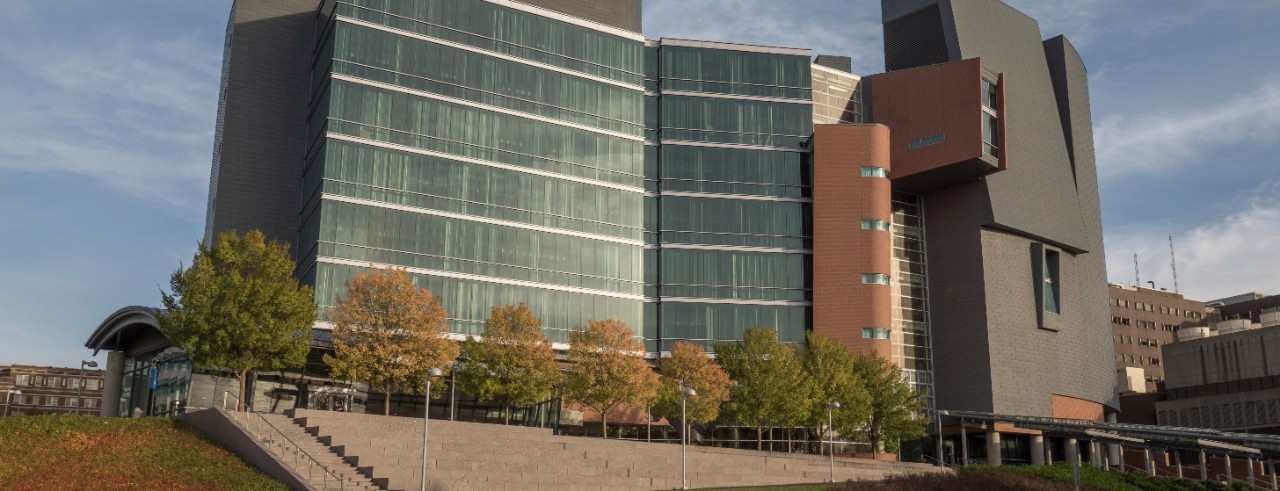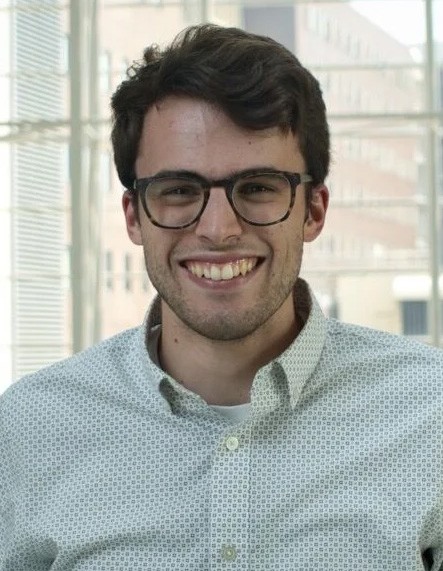
Nick Shaw named a Goldwater Scholar
Becomes fifth Medical Sciences student receiving the scholarship
Nick Shaw, a third-year student in the Medical Sciences program, has been named a 2022 Barry Goldwater Scholar. The Goldwater Scholarship is designed to foster and encourage outstanding students to pursue research careers in the fields of the natural sciences, engineering and mathematics. It is the preeminent undergraduate award of its type in these fields.
“It still feels a little surreal,” Shaw says about receiving the scholarship. “I remember learning about the Goldwater Scholarship as a senior in high school and feeling like it was this forever in the future kind of goal. Since I learned about it, it had always been in the back of my mind, and I was pretty intent on applying to receive a UC nomination when I first stepped on campus as a freshman. My main goal has always been, and still is, to become a great scientist and being a good applicant for the Goldwater is just a side effect of that.”
Anil Menon, PhD, director of the Medical Sciences program, says that Shaw came into the baccalaureate program thinking he wanted to go to medical school and practice clinical medicine.
“As he explored the many paths in the MedSci program that allow an individual to contribute to humanity, he underwent a process of transformation and became passionately interested in medical research,” Menon says. “Nick’s high intelligence, grit and scientific curiosity, coupled with immersive experiences in Drs. Tom Seegar’s and Masato Nakafukas’ laboratories, along with excellent mentoring by Drs. Bryan Mackenzie, Kevin Haworth and Jenny Hyest, have all played a part in his great success as a Goldwater scholar.”

Third-year Medical Sciences student Nick Shaw.
Seegar, an assistant professor and Ohio Eminent Scholar in the Department of Molecular Genetics, Biochemistry and Microbiology, says Shaw already “has made significant intellectual and technical advancements, resulting in an immediate impact on the laboratory’s scientific pursuits. In my experience, it is very rare for an undergraduate to pursue multiple avenues of experimentation and only possible because of his exceptional abilities to operate in a lab.”
He adds that Shaw has all the personal attributes to emerge a leader among his peers in biomedical research and that he is confident he will be successful in continuing to establish himself as a leader in academic research.
After graduation next year, Shaw plans to pursue a doctorate in biological chemistry and structural biology.
“In graduate school, I am hoping to work to identify alternative, but essential, conformational states of proteins to gain a better understanding of how the protein works in a step-by-step kind of way,” Shaw says. “This will allow for scientists to better develop drugs targeting these proteins when they are causing disease.”
Shaw adds that he would like to remain close to bench science and would consider joining an academic institution or biotechnology company.
Shaw who is from Xenia, Ohio, plans to use the Goldwater Scholarship to continue his current research in Seegar’s laboratory.
“We study a process called ectodomain shedding, a process in which proteolytic enzymes on the membrane of a cell cut, or shed, various other proteins releasing them from the surface of the cell. These proteins that are cut and subsequently released are important for cell signaling and communication, cell adhesion and inflammation,” Shaw explains.
Shaw hopes his research can determine the structure of the prodomain of one of these proteolytic enzymes. A prodomain is an inhibitory domain that keeps enzymes from being active until the cell wants them to be activated. Essentially, prodomains keep enzymes from being active and act as an additional point of regulation.
“The protein I am studying is ADAM10, and ADAM10’s prodomain is highly specific to itself. Therefore, understanding the structure of the prodomain will provide an extremely useful template to develop drugs targeting ADAM10 while minimizing side effects,” Shaw says.
Dysregulated ADAM10 is implicated in Alzheimer’s disease and glioma progression and is being explored as a drug target. In the past, drugs targeting ADAM10 have resulted in many off-target side effects, which is why it is so important to learn the structure of the prodomain, a specific inhibitor of ADAM10.
“Currently, I am working on optimizing crystallization of the ADAM10 prodomain. We are using a technique called X-ray crystallography to determine the structure of the prodmain, and this requires us to grow crystals of purified protein,” he says
Shaw is a member of the University Honors Program. Last year he received an Undergraduate Research Fellowship, which supports his research. In 2021, he was awarded the College of Medicine Graduate Education Summer Undergraduate Research Fellowship (SURF-GE), which supported his research last summer. He also has been named a Biological Chemistry and Molecular Pharmacology (BCMP) Scholar, which will allow him to conduct research this summer at Harvard Medical School.
Shaw is the fifth Goldwater Scholar from the Medical Sciences program, following Sanjeeth Rajaram (2021), Rishi Mehta (2020), Nihar Rama (2019) and Andrew (Scottie) Emmert (2018).
Students wishing to apply for the Goldwater Scholarship should contact the UC Office of Nationally Competitive Awards.
Related Stories
OTR mural celebrates UC alumni success
April 4, 2025
The UC Alumni Association, UCAA, will mark its annual Alumni Celebration during its upcoming Alumni Week, April 7-13, with a community art project commemorating this year’s slate of alumni honorees receiving the organization’s top awards.
Study: Platform-predicted treatments improve outcomes for...
April 4, 2025
Results from a new Phase 3 trial published in the journal npj Precision Oncology found that an assay that includes an assessment of cancer stem cell sensitivity to chemotherapy can accurately decide more effective treatments and lead to increased outcomes for patients with platinum-resistant ovarian cancer.
Pediatrician celebrates 30th UC College of Medicine reunion with...
April 3, 2025
There’s a vital thread woven into the fabric of Chris Peltier’s life. It’s black and red, and it knits all things Bearcat together into a life that was transformed by the University of Cincinnati and the UC College of Medicine.
